International Activities
2023 Japan-Korea Student Exchange
TABLE OF CONTENTS
Overview of This Trip
1. Japan-Korea Student Exchange
Since 2002, the Japanese University Co-op and the Korean University Co-op have organized the Japan-Korea Student Exchange Seminar, facilitating student interactions on history, culture, and various subjects. The pandemic led to online exchanges in 2021, and regrettably, no exchanges occurred in 2022. In the pursuit of restoring in-person exchanges, a delegation from Japan visited Korea this time.
2. Preliminary Study
- Date: September 26, 2023, 14:00-15:30
- Location: The History Museum of J-Koreans
http://www.j-koreans.org/en/ - Participants: 5 students and 2 NFUCA staff
- During the museum visit, we gained insights into the historical aspects of war and the challenges faced by Koreans residing in Japan.
3. Exchange Program
- Date: October 5 - 7, 2023
- Location: Seoul
- Participants: 3 students and 2 NFUCA staff
- Itinerary
- Thursday, October 5, 2023
Travel to Korea, Kyunghee University Co-op visit, KFUC Office visit, presentation and discussion - Friday, October 6, 2023
National Museum of Korean Contemporary History visit, Soongsil University Co-op visit, presentation and discussion, picnic at Han River Park - Saturday, October 7, 2023
Gyeongbok Palace visit, travel back to Japan
- Thursday, October 5, 2023
Kyunghee University Visit
NFUCA’s visit to Kyunghee University included tours of the dining hall and bookstore. As one of the largest universities in Korea, Kyunghee University boasts an enrollment of approximately 35,000 students. Additionally, we received insights into the initiatives led by the Kyunghee University Co-op Student Committee, known as Cupid, which has successfully implemented numerous projects benefiting cooperative members through the university store.
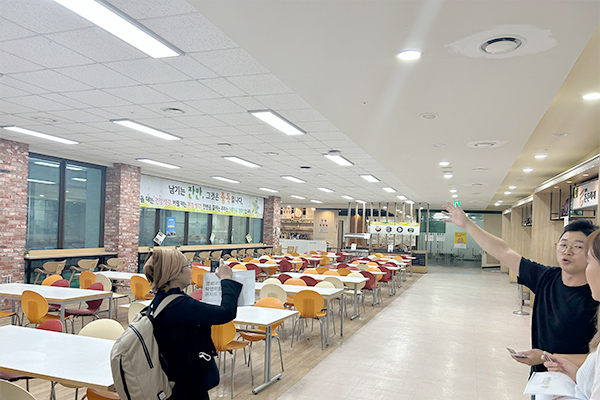
Expansive dining space
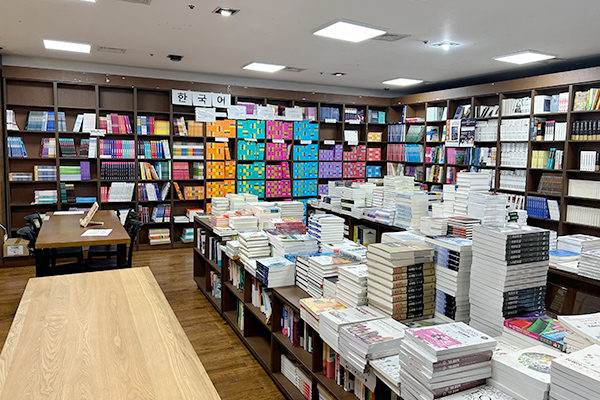
A display of numerous books, predominantly textbooks
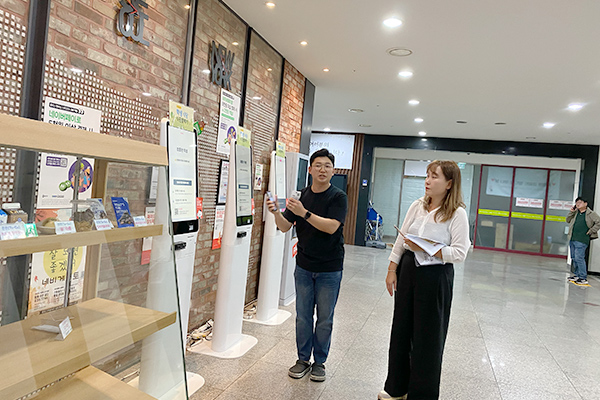
Meal ticket machines
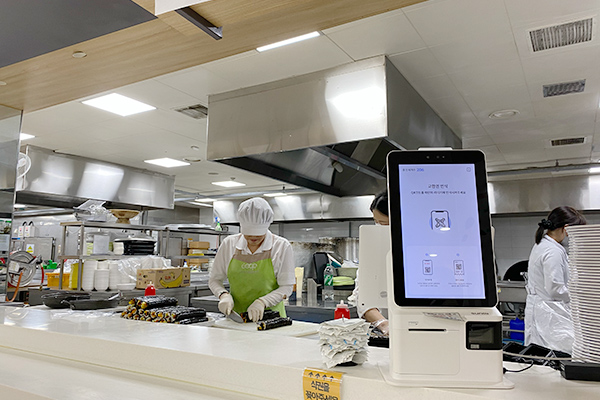
The preparation of Kimbap
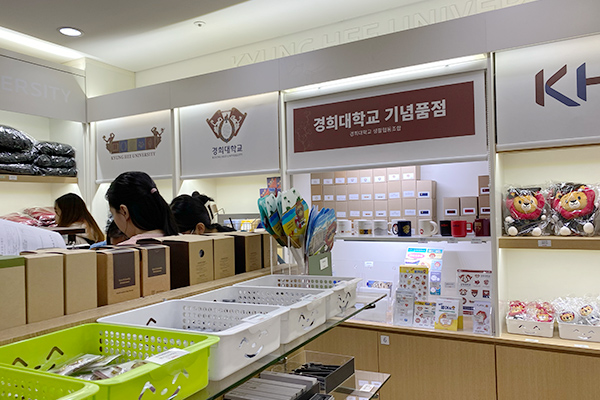
Kyunghee University's exclusive merchandise
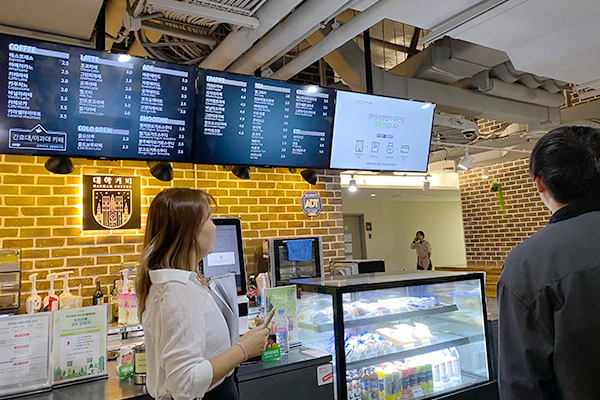
University Co-op-operated café
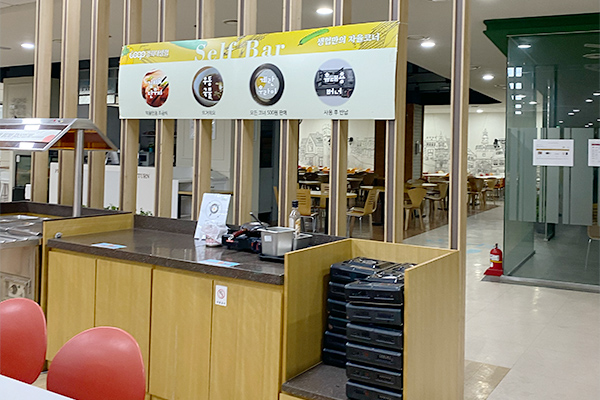
Equipped with a stove, allowing the preparation of ramen noodles, and more
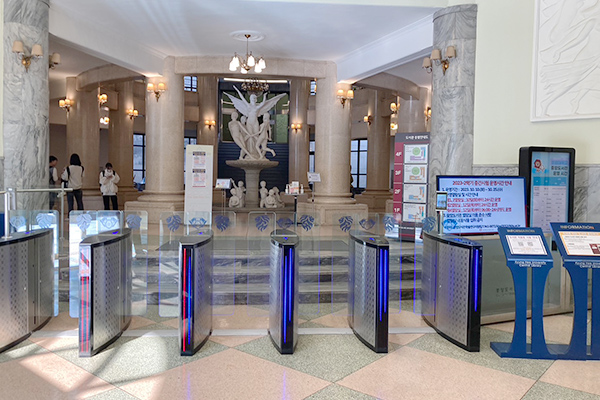
The entrance to the library
Exchange with KFUC
We engaged in an exchange with students from Korea Federation of University Co-operatives (KFUC), during which we gained insights into the origins and current status of the Korean University Co-op.
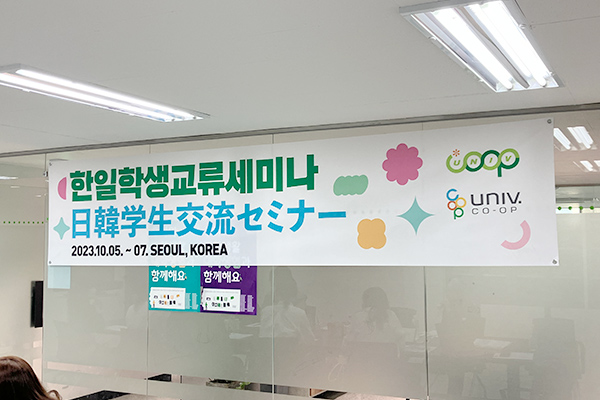
A heartfelt welcome awaited us
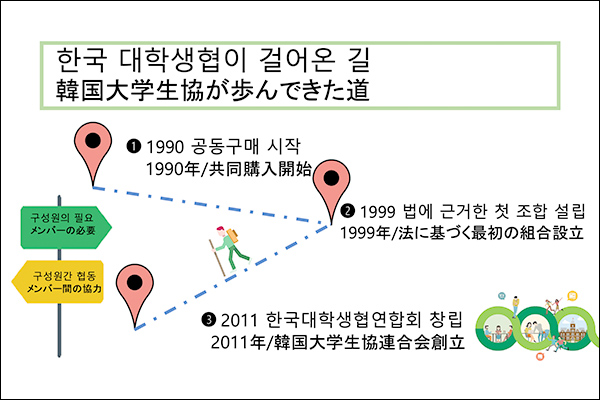
An overview of the history of the university co-op in Korea
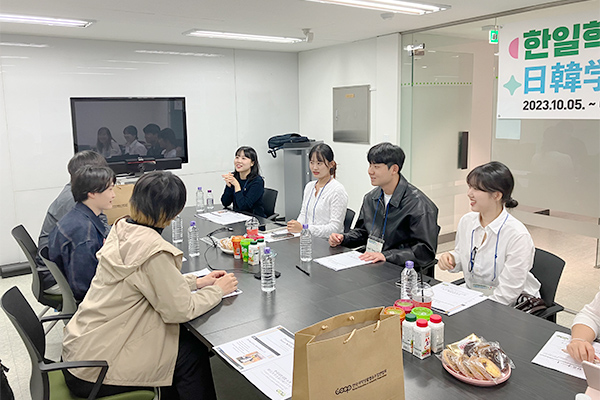
A glimpse into the exchange program's moments
Presently, there are 35 university cooperatives in Korea, boasting a membership of 140,000 individuals. The membership rate remains relatively low among Korean university cooperatives, posing a significant challenge. The cooperative's foundational principles revolve around “cooperation, welfare, and coexistence,” aligning closely with the ethos of university cooperatives in Japan.
Visit to the National Museum of Korean Contemporary History
Equipped with a Japanese translator device, we explored the National Museum of Korean Contemporary History. Our visit provided valuable insights into the colonial period during Japan's annexation of Korea, along with a comprehensive understanding of the history and culture of tourism up to the present day. The museum's impactful visual explanations, spanning exhibits, theaters, and video presentations, left us deeply impressed.
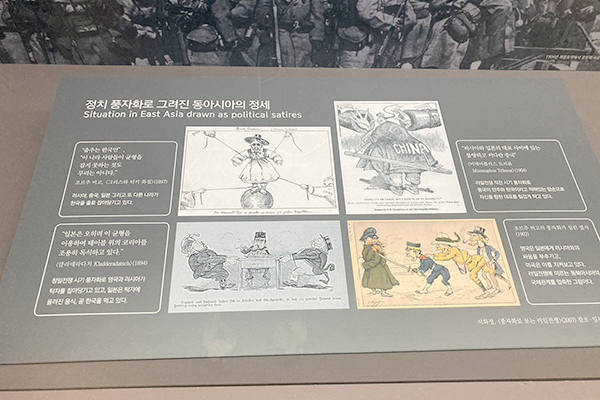
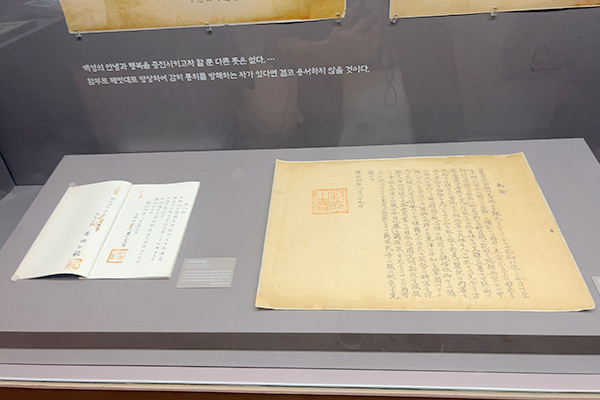
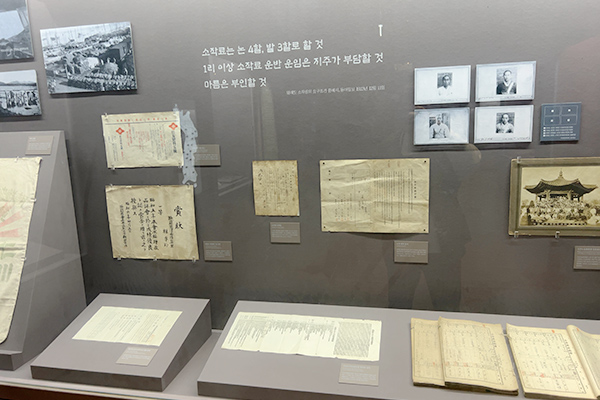
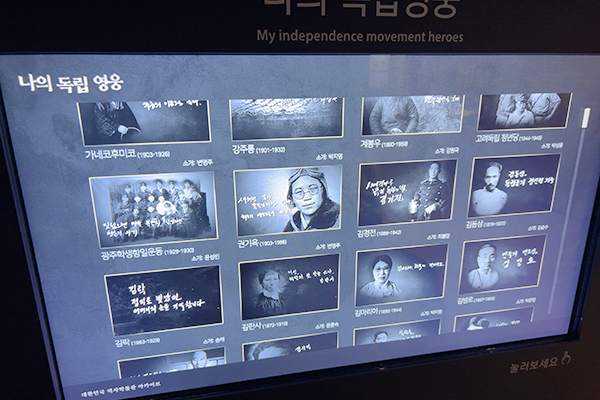
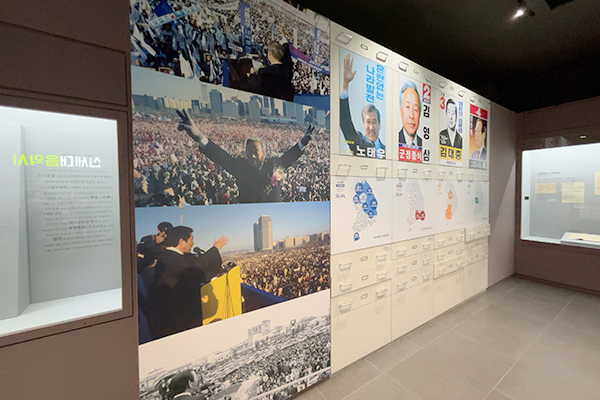
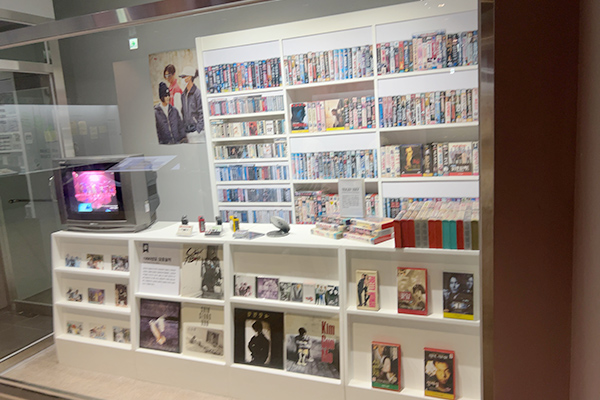
For additional details about the National Museum of Korean History, kindly visit:
https://www.much.go.kr/en/mainen.doSoongsil University Visit
During our visit to Soongsil University, we enjoyed lunch at the cafeteria, explored both the cafeteria and purchasing area, and engaged with students affiliated with the KFUC. The campus boasted a diverse array of cafeterias, with a particularly memorable feature being their classification into three distinct price ranges.
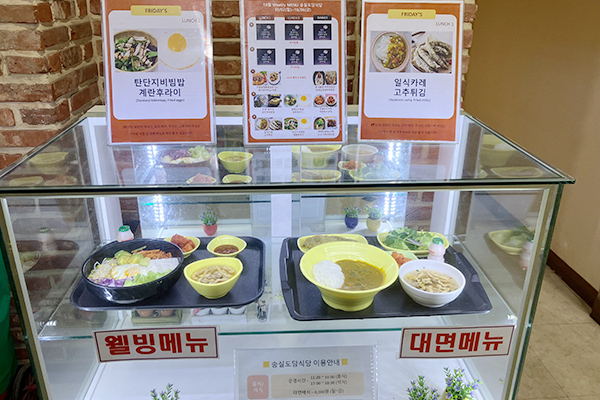
Cafeteria menu
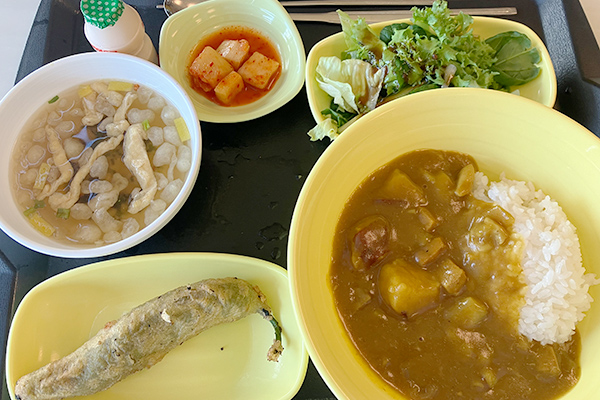
Featured dishes include curry and bibimbap. Both dishes are
priced at around 6,000 won.
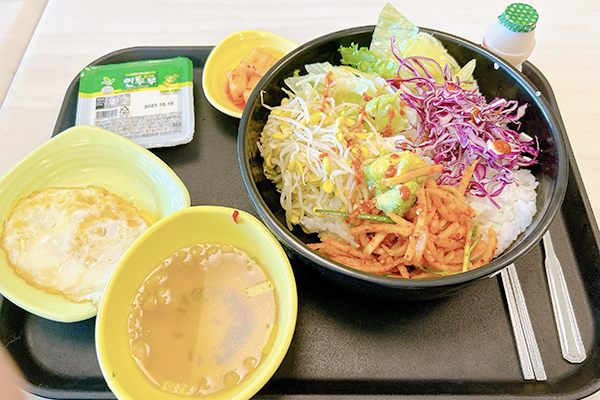
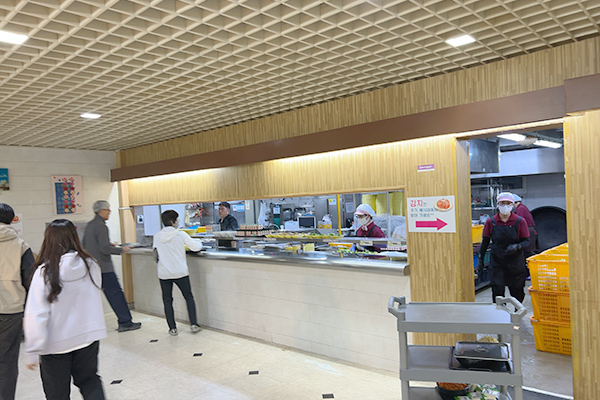
The diner operated on a meal ticket system, and orders were
received at the counter
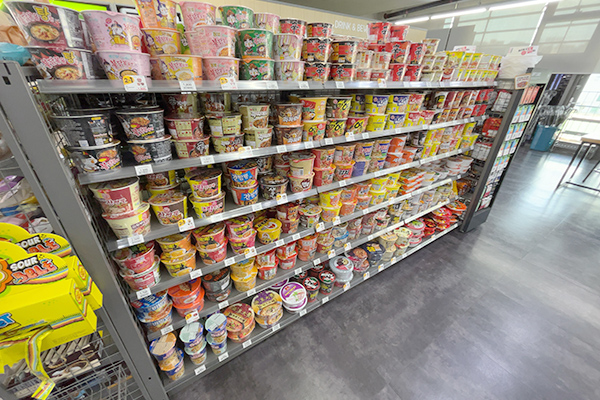
Cup noodle corner in the store
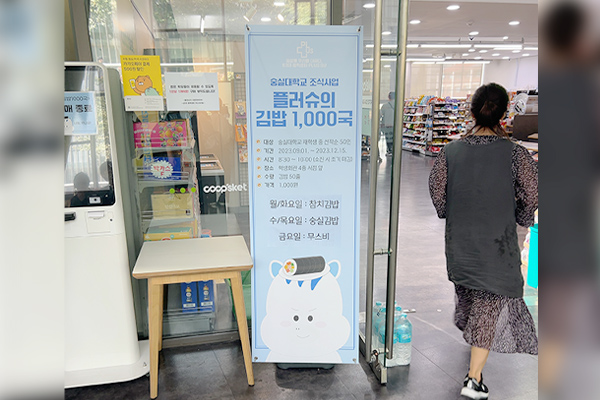
A project offering kimbap for 1,000 won is incredibly popular
and quickly sold out
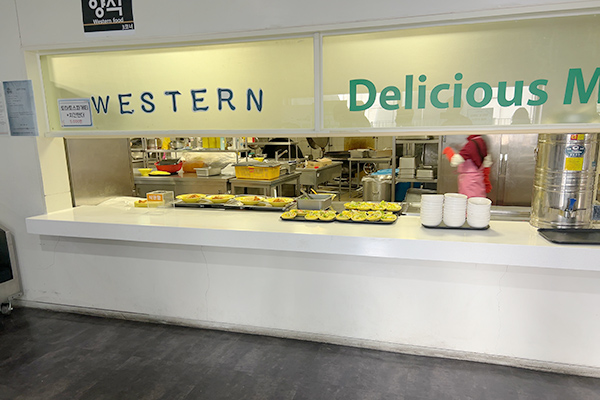
An alternate angle capturing the cafeteria's ambiance
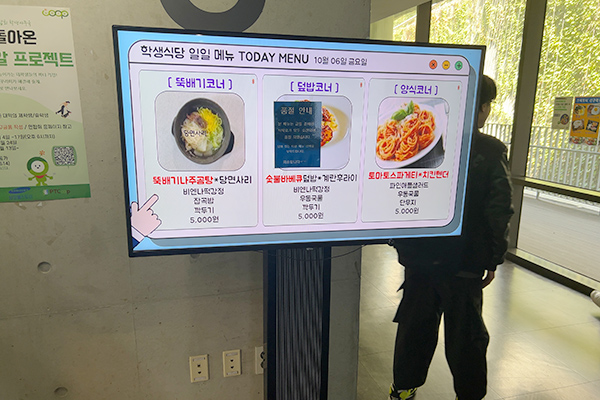
The menu of another cafeteria
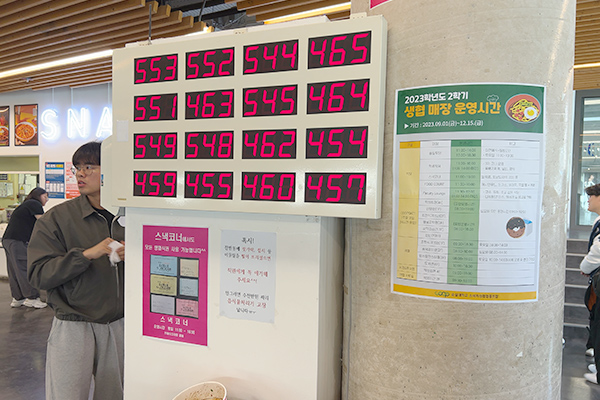
A numbering system for calling orders
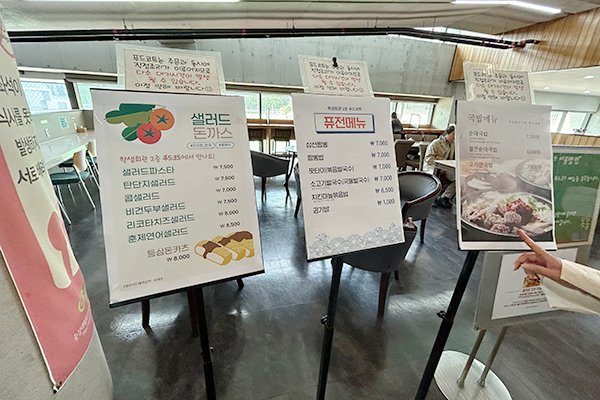
Another cafeteria where its prices are a bit on the higher
side
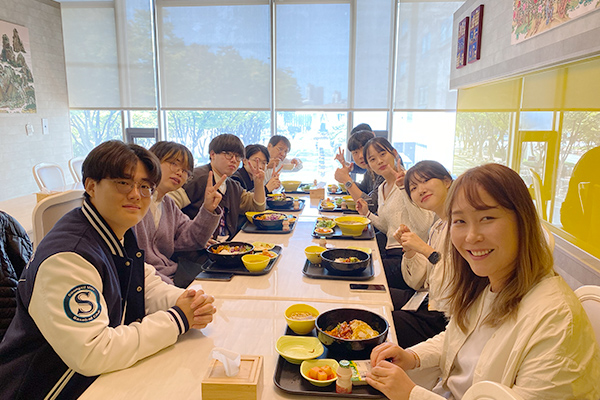
Lunch
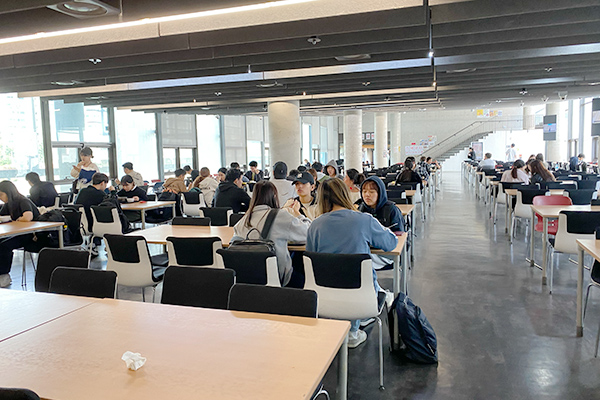
Co-op members enjoying their meals in the cafeteria.
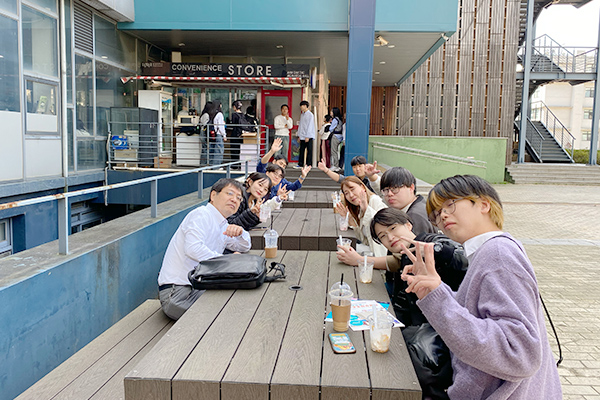
Everyone indulged in parfaits!
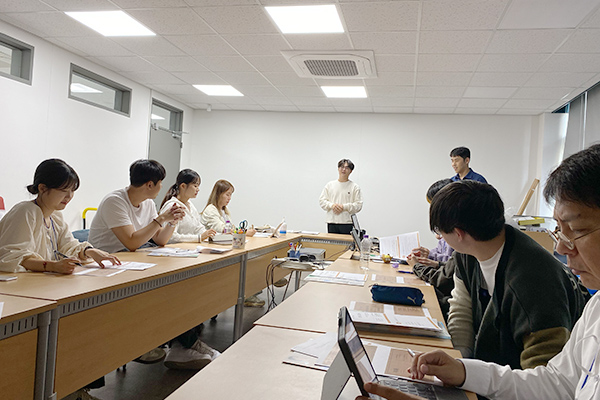
Exchanges among students
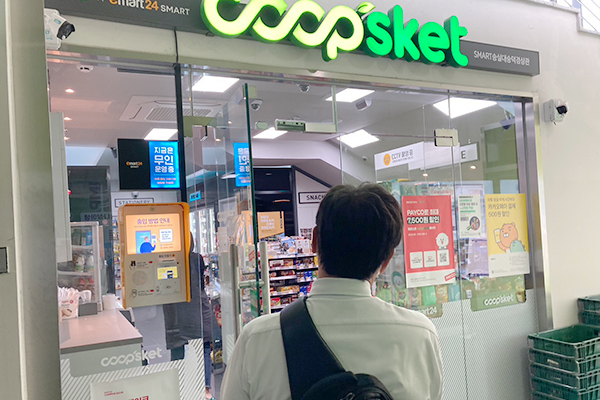
An unmanned store entrance – simply hold your card over the
reader on the left to enter
The second day of our exchange program involved acquainting ourselves with the student affairs office and student committee in Korea. From the Japanese perspective, we presented an overview of the university co-op movement during the pandemic, highlighted projects undertaken by Japanese university co-ops as detailed in the University Co-op Report, and outlined our 2030 Goals.
The KFUC Student Committee, comprising student committee chairs from various universities, actively fosters collaborative projects through regular monthly meetings and other means. We were particularly impressed by the multitude of projects leveraging social media platforms.
During discussions, Korean students shared that a significant challenge faced by the Korean university co-ops is collaborative purchasing with general convenience stores. This practice poses difficulties in prioritizing the health and safety of members and incorporating their opinions. Our conversation also delved into mutual cooperation aspirations, accompanied by insights into Japanese initiatives.
Picnic at Han River Park
Following extensive discussions, all members gathered for a picnic by the Han River. Picnics are highly favored along the Han River, and that day, the area was bustling with many people. It's a popular event enjoyed by individuals of all ages, where picnic essentials can be rented.
After the picnic, we promptly indulged in samgyeopsal, and needless to say, we were thoroughly satisfied.
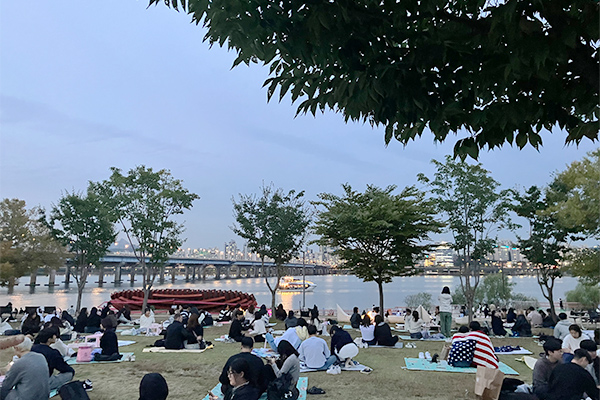
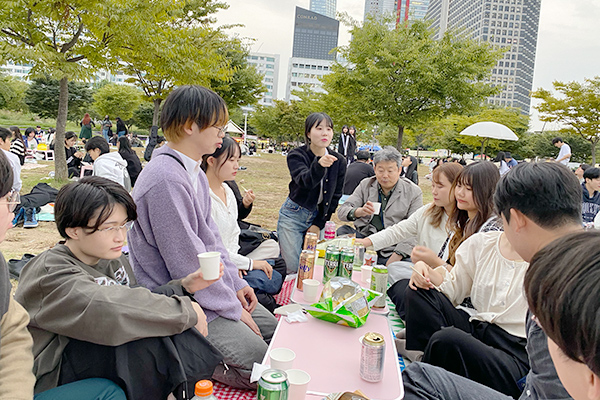
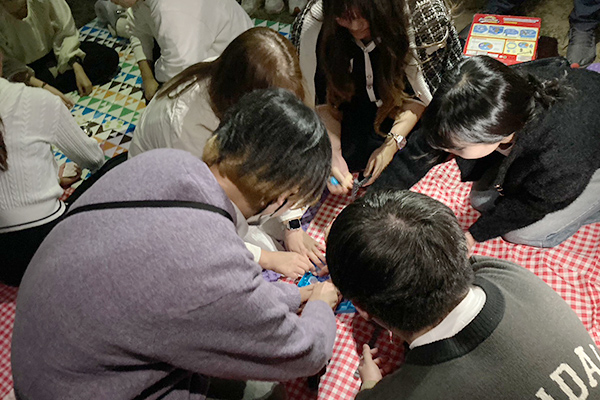
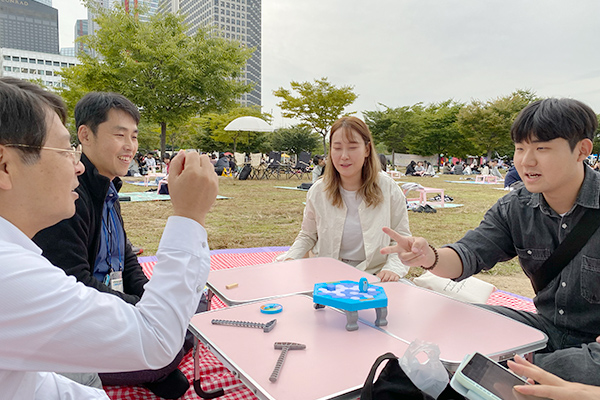
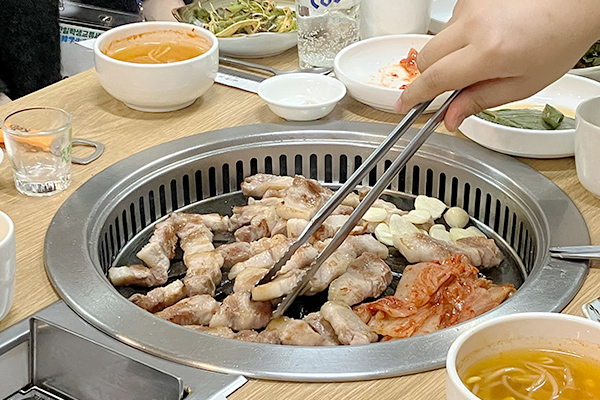
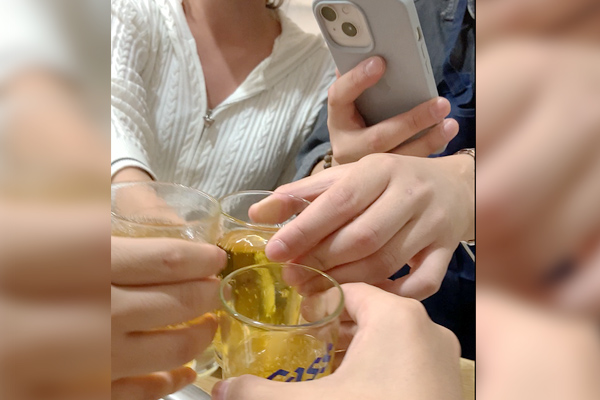
Gyeongbok Palace Tour
Gyeongbok Palace, once the majestic seat of the Joseon Dynasty, fell victim to fire during
Japanese invasion of Korea. Despite subsequent reconstruction efforts, substantial damage
occurred during Korea’s annexation. Ongoing restoration work is actively addressing these
historical scars.
Numerous surviving elements have earned national treasure status, making them sought-after
attractions in Seoul. During our visit, we attentively absorbed the Japanese-speaking
guide’s detailed narration about the historical significance of the Joseon royal palaces.
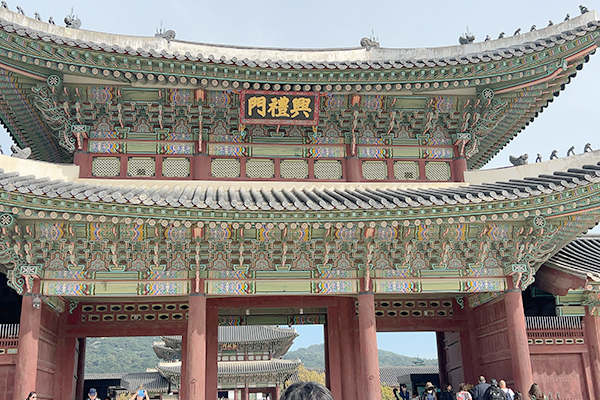
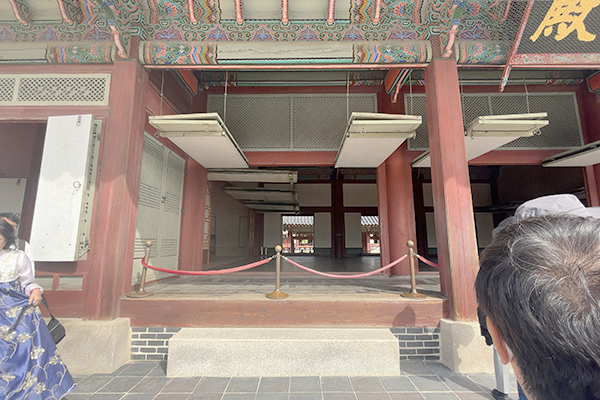
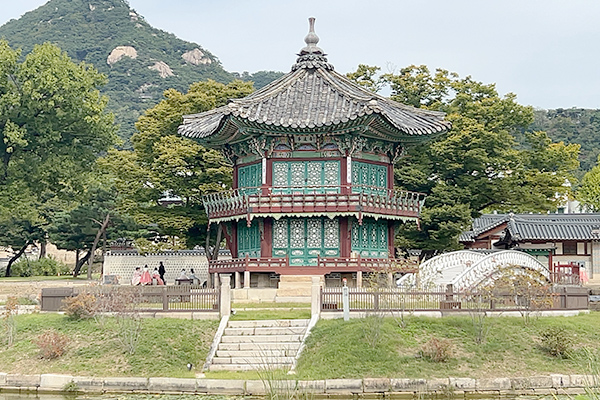
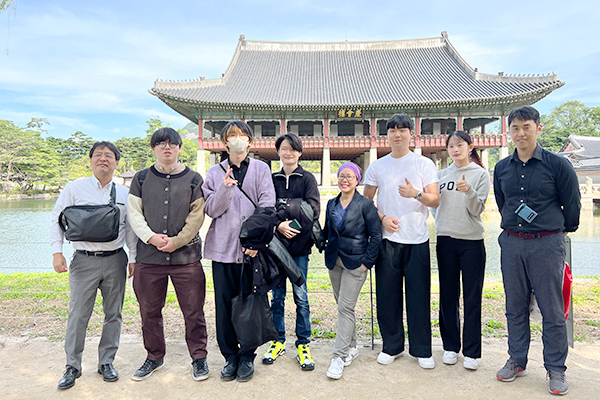
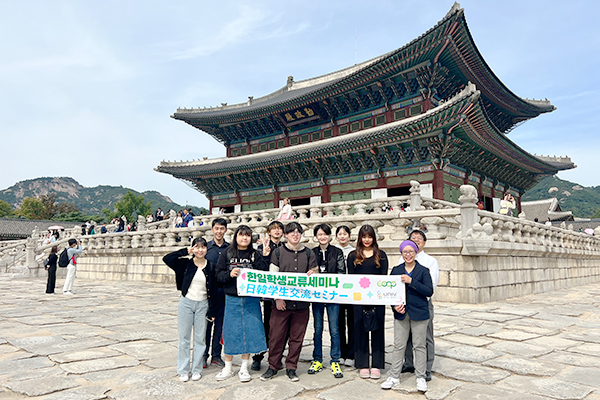

Feedback from the NFUCA Delegation
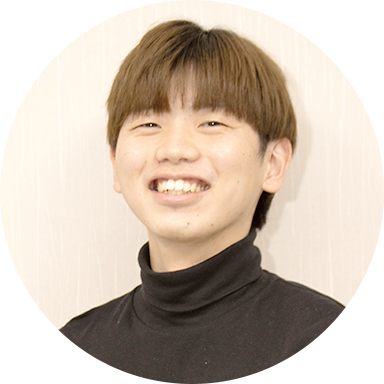
Yuki Kato
Member, NFUCA Student Committee FY 2023
Reaffirming the Importance of Connection
During my visit to Kyunghee University Co-op, I was impressed by its vast size and the advanced system in place. Electronic payments were predominant, and the operational staff in stores and cafeterias were minimal. Despite this, students actively engaged in discussions and assignments within the cafeteria space. The setup during the new semester, where the space for textbooks transformed into an area with desks and chairs, emphasized the importance of students coming together for active learning and collaboration, a practice familiar to Japan. Even in Korea, the idea of fostering a community where students actively study and work together was evident.
When we inquired about the impact of the COVID-19 pandemic on Korean students, they shared their feelings of loneliness, especially during the exam period. This resonated with the experiences of Japanese students. With the easing of restrictions, I believe there is an opportunity for us to exchange ideas on community building, learn from each other, and provide mutual encouragement in the future.
Better University Life through Participation and Cooperation
While visiting a University Co-op store, the Korean University Co-operative emphasized the welfare of its members. Japanese university co-ops share the common goal of enhancing member welfare through cooperation and extending the importance of such collaboration to society. We are actively promoting participation and cooperation among our members and aspire to instill the belief that “Cooperation is great! University student cooperatives are great!” Similar to the university cooperatives in Korea, we aim to create a participatory community among university members. As outlined in the activity policy for all university co-ops in Japan for FY2024, we value dialogue with our members, aim to expand our connections, and increase the sense of accomplishment among our members.
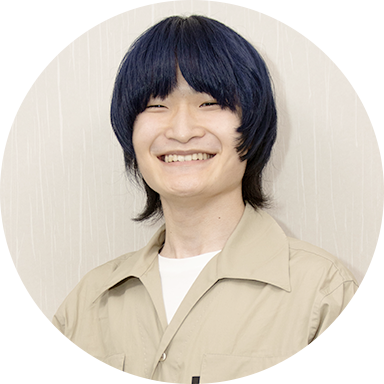
Hiroki Hirama
Member, NFUCA Student Committee FY 2023
Overcoming the Language Barrier and Quickly Becoming Friends
My business trip to Korea provided insights into Korean history and fostered a sense of closeness with Korean students. The similarities between university co-ops in Japan and Korea, both in their establishment backgrounds and students' camaraderie, became evident. Despite using a translator and basic English, communication with Korean students flowed seamlessly, and we quickly established friendships. Conversations ranged from trendy anime to daily life, highlighting minimal differences between the two countries.
Strengths and Challenges of Both Sides as Observed during a Visit to a Korean University Co-op
The Korea Federation of University Co-operatives showcased digitalized cafeterias and stores scattered throughout the campus. Features like card payments and smartphone ordering indicated a focus on creating convenient and efficient stores, with some operating 24/7 and featuring unmanned hours and self-service cafeterias. This example serves as a valuable reference for Japanese university co-ops aiming to respond to the trend of digitizing campus facilities. Conversely, Korean university co-ops face challenges such as member apathy and the commercialization of the university, similar to issues seen in Japan. However, the cycle formed by Japanese university co-ops, where members involved in the co-op become interested through shared traditions and solidarity, stands out as a strength. Keeping students engaged in the cooperative through a solidarity-based learning structure is a unique aspect of Japanese university co-ops.
Continuing Exchanges in the Future
My visit to Korea revealed a spirit of continual development in response to the times. It's a momentum that embraces the past for post-modern development, adapting and evolving without clinging to outdated practices. In an era with a certain degree of saturation, this ability to adapt and develop is more crucial than pioneering power. Globalization has been discussed for several years, and international exchange continues to offer discoveries from unexpected places. This visit strengthened my resolve to engage in ongoing international exchange. I am grateful for this enriching opportunity.
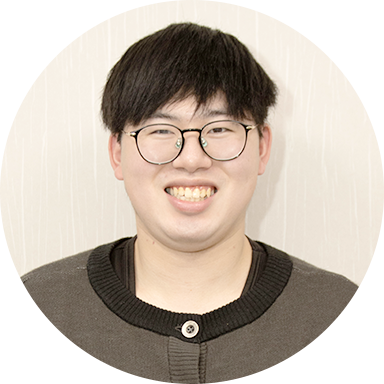
Tomu Umeda
Member, NFUCA Student Committee FY 2023
Overall Impressions
This visit provided a valuable opportunity to explore university co-ops beyond Japan. It was eye-opening to realize that some aspects taken for granted in Japan differ in Korea, and vice versa. The experience expanded my knowledge and understanding.
Experiencing Each Other's Culture
Learning about the situation and culture of Korean co-ops was enlightening. In Korea, cashless payments are more widespread than in Japan, and campuses are becoming smarter with unmanned stores and pre-payment systems. Specific experiences, such as self-serving bibimbap at Soongsil University and cooking menus at Kyunghee University, reflected a culture that values the freedom and autonomy of union members. Engaging in conversations with students over diverse meals allowed us to share our perspectives on various topics, including Japanese anime, manga, and artists. Despite coming from different countries, we found common ground as peers of similar ages.
As Friends Working Together in a Cooperative
In Korea, there is an acknowledgment that the awareness of “cooperation” among cooperative members is not as high. The ratio of cooperative members to the total campus population is relatively low, leaving ample room for growth in the co-op community. However, this observation may also hold true in Japan. To enhance the engagement of university co-op members, there are opportunities for improvement on both sides. By cherishing the identity cultivated by Japanese university co-ops throughout history and incorporating emerging technologies and systems from South Korea, we can collectively create a better university co-op. I hope we can continue to pursue improvement in our respective countries through active involvement, mutual learning, and collaborative enhancement. I aim to cherish the connections that transcend national boundaries established during this visit.
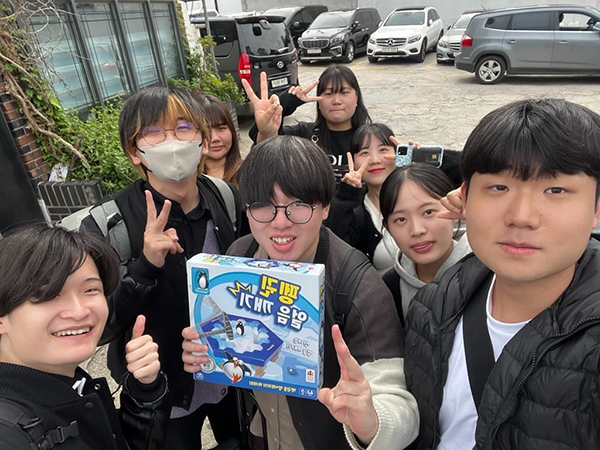
Everyone in Korea gifted us a game during the picnic, and we look forward to playing it again in Japan!